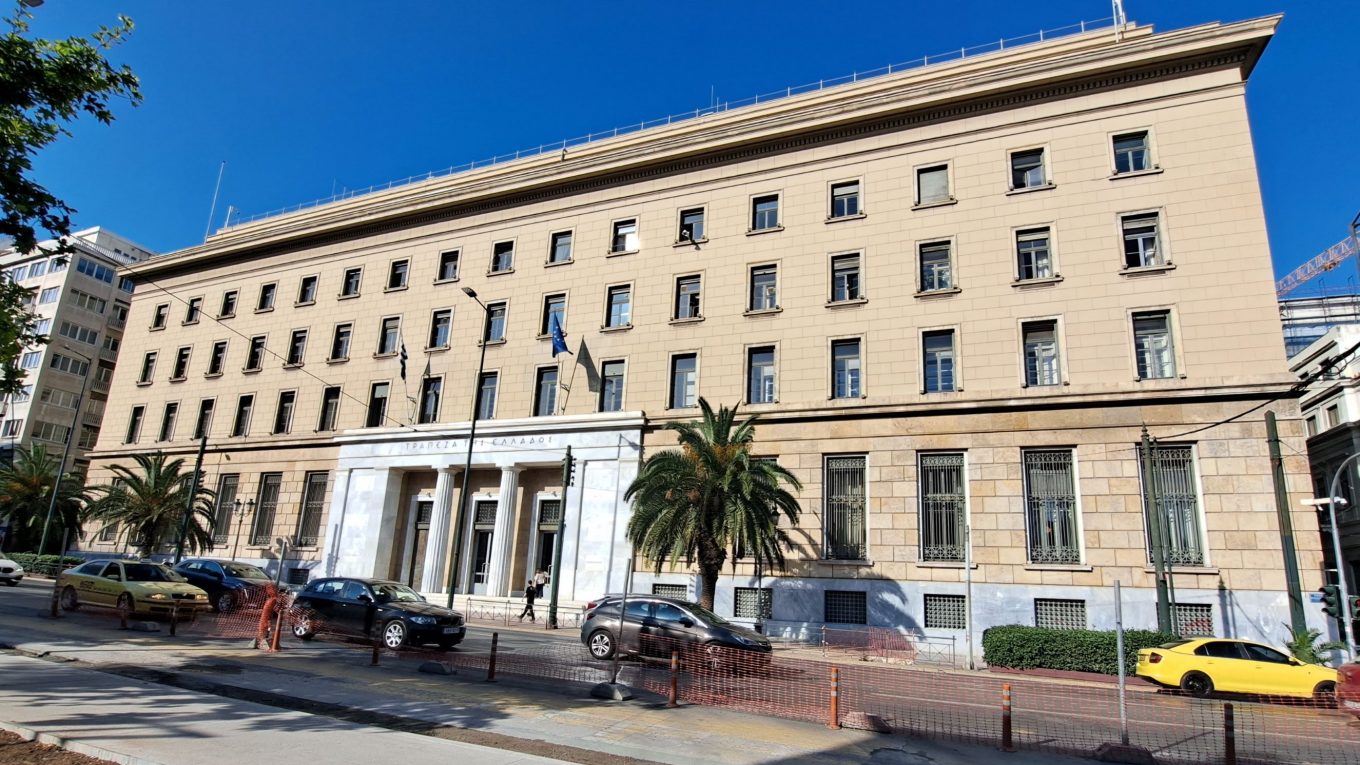I’ve just returned from a work trip to Athens, my first in-person away day since before the pandemic. I’d last attended a conference in person in 2019, and an away day of my working group back in 2017. A big takeaway has been how good it is to talk face-to-face.
Hybrid and virtual meetings really cut out the opportunity for one-to-one conversation. You log on with a minute to spare, there is no chatting during breaks often only the length of a brief comfort stop. I felt very fortunate that my hosts also arranged dinners for the participants on both evenings. The hospitality extended at the meeting itself was also conducive to being able to talk to colleagues from other institutions. The breaks for coffee and lunch allowing me to speak to several other attendees. Even quick chats to the colleagues sat either side at the beginning of the meeting had a novelty value. Compare that with the awkward silence of hybrid meetings, where at best there is a round of salutations before silence. With presence meetings you are consciously “in the room” the entire time.
Hybrid and virtual meetings have killed off one-to-one conversation
Many hybrid and virtual meetings have an unwritten rule not to use the chat function during the meeting. This makes options for conversations with other colleagues very limited. Online meeting fatigue has also meant that meetings have been pared back in length massively. People attend for the bare minimum time and with cameras off (to conserve bandwidth rather than not wanting to be seen).
By travelling for the meeting, I felt like I was attending the meeting with a renewed purpose. I was eager to talk to as many of the other participants as possible. I knew many for a number of years from presence meetings, but we had sparse contact during the pandemic years. Even sessions with less direct relevance for me than others provided interesting comments. Some are already due to flow into my internal Language Services Handbook (LaSH). The LaSH is a living document compiled since 2017 and that covers various aspects of language services. It addresses issues like best practices, lessons learned from past experiences, technical issues resolved, and handling procurement processes.
And break!
Scheduled breaks in meetings allowed me to talk to other participants. Their situations range from those encountered by fellow SPLSUs (single person language service units) who I ally with, and where we discuss how we manage without a team, and the challenges of smaller language units. With larger language service units, I frequently talk about how job remits change, We talk about team members upskilling, diversification of activities, changing trends in job types, and the changing profiles of linguists. After all, larger teams have more options to look into new areas, and for individuals to “personalise” their position. Most importantly, it is a really important chance to talk about LangTech. Within the group, practically all the language services represented use Computer Assisted Translation (CAT) / Translation Memory software, as well as terminology software. This is our starting point
We need to talk about LangTech
The real hot potato is about the increasing use of technology in language services. LangTech is ultimately already an essential part of language services. During my time as an in-house translator, I have witnessed the neural machine translation (NMT) revolution, the use of natural language processing (NLP) and AI in language services, and now the rise of large language models (LLMs) including ChatGPT.
Some of the colleagues I met with also use additional LangTech solutions and are further along with deployment of machine translation. In some cases, they even have in-house language technologists who work on finding the system(s) that suit(s) their needs. More often than not, there is more openness to talk about what hasn’t quite worked out, or has perhaps not proved as successful as hoped.
The LangTech debate is an interesting one, in that I could be an ostrich and stick my head in the sand and cite (over-)busyness as a reason not to look into it further. However, at the same time, if there are some tasks that it is able to perform and help with that increase my productivity, or alternatively free up translation capacity, then this is a churlish approach. I also cannot afford to rest on my laurels, and be late to the party. After all, certain tasks are currently very time-consuming for relatively little return. For this reason, some alignments and terminology work often only getting fleeting consideration, due to the time needed for them to make a positive impact.
Why I am not LangTech averse…
Good LangTech solutions might reduce a two-hour task to one of twenty minutes. A couple of hours invested can go a long way. It makes investing a couple of hours into alignment or terminology extraction far more conducive. I did a lot of alignment to try to establish a larger translation memory when starting out. Some of the benefits from those early alignments were only realised a number of years later.
Another benefit of talking about LangTech isn’t just about what works, but also about what doesn’t. Understanding the cost-benefit analysis for a large language services unit and economies of scale also is useful to rule ineffective solutions. Granted, I only get to see how the public sector is considering LangTech,
And how about LangTech in the private sector and for freelancers?
The private sector is savvy to MT and having the human expert in the loop doing the PEMT task. I have started to see some freelancers offering “supervised MT” as a premium service. Here light post-editted machine translations are fit for purpose (e.g. gisting) although not a polished human translation. And this is a premium rate service. The potential new charging models are interesting in this regard. Otherwise, there is a race to the bottom with dumping rates abounding for PEMT work through agencies. Where I am particularly interested in their approach is about how they offer such a service for sensitive material. I am also interested in the mitigations in place and the workflows involved.
Another interesting consideration is also what the PEMT margins are like such services, particularly if context matching is used in the MT process (or 102% (double context) and 101% (single context) matches in MemoQ). There is a very thorough examination of how MT character charging *really* works in this piece in the Multifarious blog. If sudden a text of 700-800 characters is using 2,500 characters from your character allowance, it might run through your character allowance quicker than you think.
Preparing for presence meetings – (Re)learning to listen, observe, process and reflect
I find that my preparations for presence meetings are far more thorough than hybrid/online meetings. By nature, I am never a passive participant in any meeting I attend, whether personally or virtually. However, with a presence meeting, I find I take more time over preparation, e.g. finding out who else will attend and what I can talk to whom about. I also try to prepare a set of potential questions in relation to the presentations at the meeting. Presentations of technical solutions also work better in person, and I usually have a think about the possibilities of how to apply what I see.
In contrast, in a hybrid setting due to Webex-weariness, I probably only really tune into the meeting a few minutes before it begins, and seldom look at presentations beforehand if available. There is also the distinct temptation to relegate a hybrid meeting to a second screen and not to fully listen. Having had three years of exclusively hybrid meetings, it was definitely a case of having to almost re-learn meeting skills.
After three years of speaking into webcams, with either a headset, conference spider or podcasting mic, and not having my own window displayed on my own screen, I found the return to full presence mode meant readjusting to simultaneously listening and observing gestures and facial expressions of speakers. The increased effort in terms of concentration, if unused to a presence meeting setting for a while, can be quite tiring.
The value of presence meetings for freelancers
Having freelanced for 14 years, I am aware of the somewhat lonely nature of day-to-day work. My advice would therefore be to try to find yourself a sparring partner. They could be someone who either works in your field or in another, or maybe in a different language combination. They should be in a similar situation to you and you should make time to meet in person, rather than online. Attending presence-based CPD events and conferences can be a great way to network to find your sparring partner. I’ve seen numerous freelancers have done this recently and get a lot out of such meet-ups.
I realise that financial constraints for freelancers might make a two night trip with flights an unjustifiable expense. You might well be able to fine a more affordable way of meeting up with someone. How about roughly halfway from your respective offices, to have a concentrated presence meeting? Also remember the value of having time away from the screen. Such meetings remain essential as a time for reflection about what works or not in your job. They also provide a chance to consider changes to make to the way you tackle certain tasks. This can increase productivity or weed out distractions.
If that doesn’t sound like your cup of tea, you could always consider having a presence meeting-cum-Christmas party – I used to have an “unofficial Christmas party” with freelancing friends – so that we all had a night out and were able to round off the year of freelancing in a convivial atmosphere!
Part of this blog post also appears on my personal website at www.michaelbailey.at, That version has more of a focus on presence meetings, while this version focuses more on LangTech.











